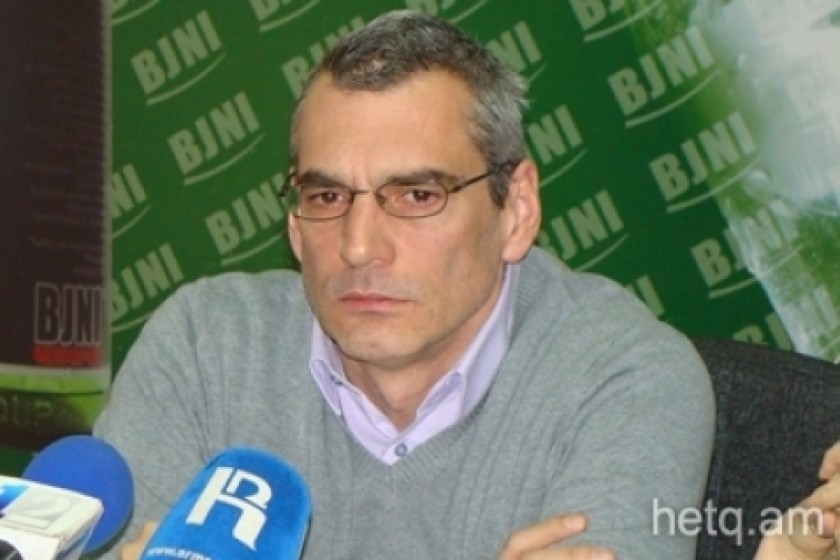
Richard Giragosian: 'President Sargsyan is the last of the Mohicans'
Excerpts of as interview with Richard Giragosian, head of the Yerevan-based Regional Studies Center, regarding developments in the Southern Caucasus.
2013 was a year of elections in all three countries in the Southern Caucasus. But we only see regime change via elections in Georgia. Do you see this as a result of internal developments in Georgia, or are external factors at play?
In this chain of regional elections, Georgia stands out for two reasons.
The first was the defeat of the ruling United National Movement. This was the first successful attempt in the region when power was peacefully handed over to the opposition. This was an important achievement for Georgia.
The second, an important lesson for Armenia and Azerbaijan, is that it is dangerous when any regime neglects the demand for social change and reforms. If we look at the regime of Saakashvili, the Republican Party in Armenia, and the Aliyev regime in Azerbaijan, they all possess an arrogance of power.
But I am not convinced that the rulers in Armenia have learnt this lesson. For example, the October 3 decision to join the Customs Union and the process involved shows that those in charge feel themselves accountable to no one.
But there is an interesting tendency from a regional perspective. Armenia is more stable than its neighbors. This doesn’t mean that it is more developed or democratic, but simply that it is more stable.
The Georgian example was also an important lesson for the EU and the West. The lesson is that it isn’t enough to invest in one democratic individual, as Saakashvili was for them. Instead of one democratic individual what is needed are democratic institutions.
This region lacks a more developed political culture and leadership.
What conditions or factors are needed so that political developments in Armenia, Azerbaijan and Georgia stem from internal processes?
There are three factors here.
First, there is one mistake always made in Armenia. For a long time, democracy in Armenia has been measured by comparing the country with Azerbaijan. However, democracy must be measured according to our expectations and standards.
Second, the situation isn’t the result of just one individual. At issue isn’t Levon, Robert or Serzh. The problem is the system. This means that any solution is also not dependent on just one person. The solution requires systematic change.
Here, there are two developments at work. For the first time in the political history of Armenia, the conflict is within the ruling circle. The opposition no longer operates against the regime. The real problem is between the Republican and Prosperous Armenia parties.
Second, there is a bigger conflict between the government and the oligarchy. The oligarchs have gotten so strong in Armenia that they pose a threat to Armenia – by not paying taxes, destabilizing the foundations of the state, etc. They have turned into Frankenstein monsters who are more powerful than the authorities.
In the mid-term, however, I am optimistic. The reason is that a closed political and economic system can no longer continue like this, and we have already entered a period of change. President Sargsyan is in his second and last term in office. He was no successors.
He is the last Mohican, the last representative of the Karabakh elite who came to power from Karabakh and because of Karabakh. The next political elite won’t be the same people or from the same generation; not even from Karabakh. But just because they will be younger and different won’t necessarily make them better.
Due to this change in the political elite, the political system will be forced to open up. To the extent that the regime finds itself in change, so too will the opposition find itself in change. We will see a new opposition take shape, and not the old faces. This won’t be the HAK (Armenian National Assembly) or the Heritage Party.
Looking at civic movements, we see people who aren’t politicians but rather young people and activists. Even the traditional opposition parties aren’t involved in these processes. This is a tendency where people are trying to make the authorities accountable and they are challenging them to be so.
At the same time, we are seeing the rise of new opposition leaders like Nikol Pashinyan, for example.
The current political system is much weaker than it appears. And because political parties in Armenia are inactive, the political field is open to the formation of a new opposition.
 Videos
Videos Photos
Photos




Comments (2)
Write a comment